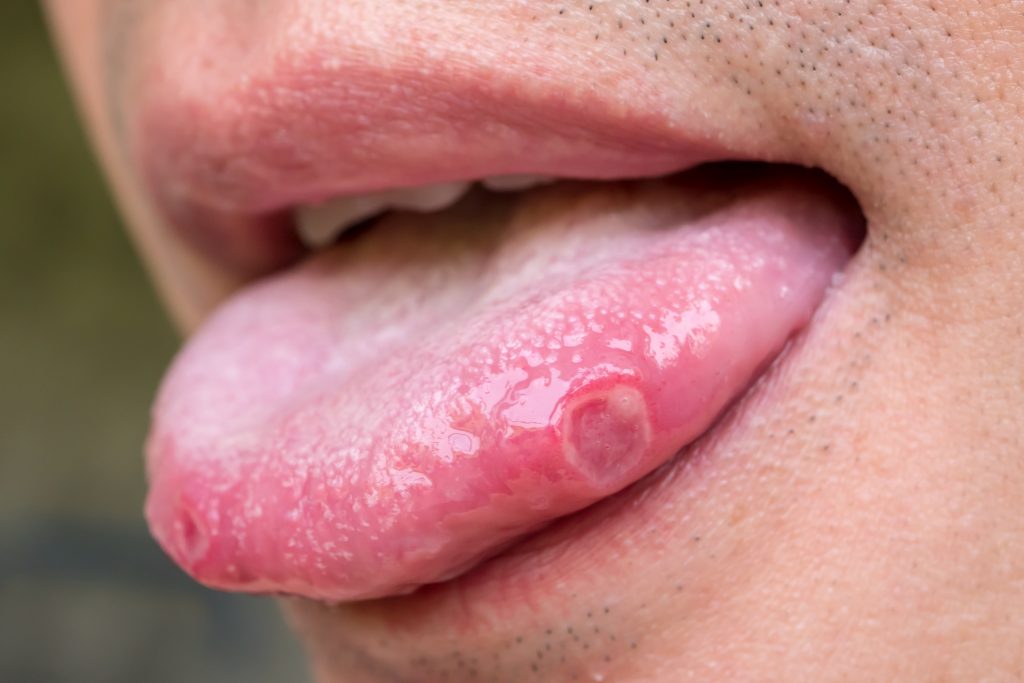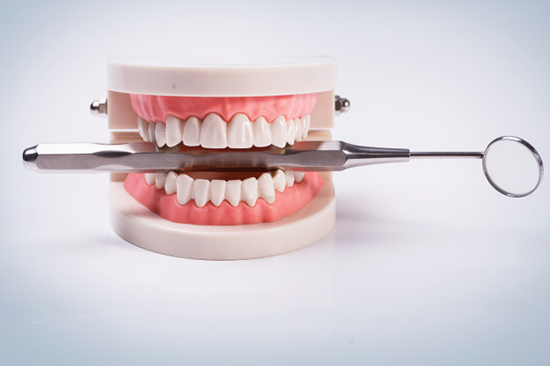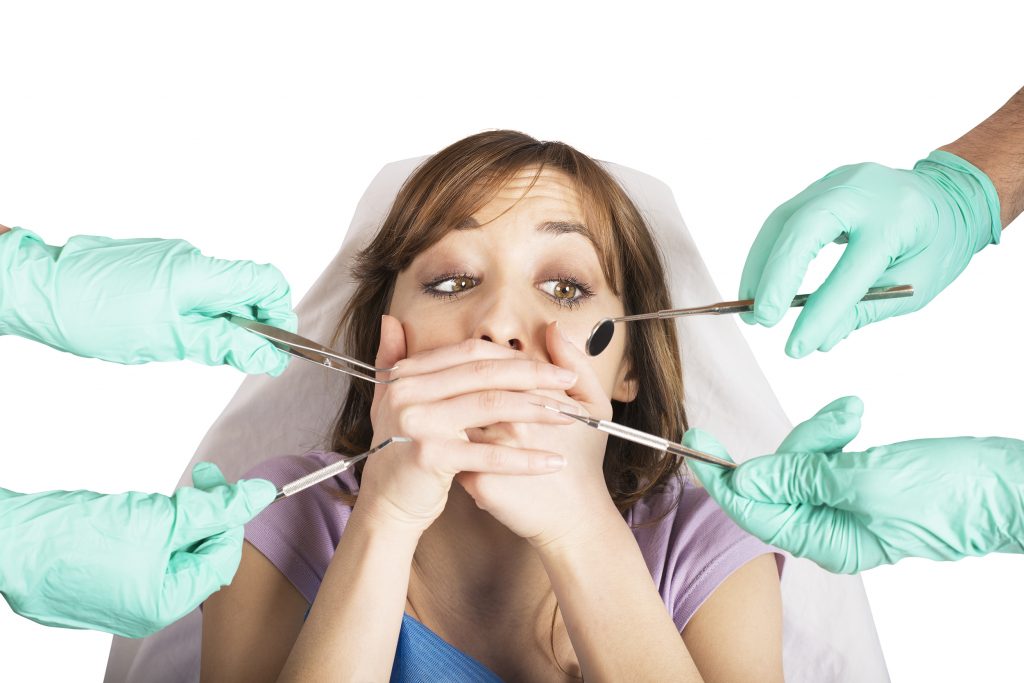
Emergency dental appointment for mouth ulcer treatment
Mouth ulcers are not contagious and usually heal by themselves in a week or two. However, sometimes the ulcer can be large enough and extremely painful and may last a long time, in such a situation you must visit our clinic in London and consult our dentist.
What is a mouth ulcer?
Mouth ulcers are also known as canker sores or aphthous ulcers. They are typically small, painful open sores that can appear inside the mouth, on the gums and even on the tongue. They are usually white or yellow in colour, surrounded by a red halo of inflamed tissues. Although they are generally harmless, they can be extremely painful and turn everyday activities like eating, drinking and talking unpleasant.
Types of mouth ulcers
MINOR ULCERS
Minor ulcers or canker sores are small (less than or equal to 5mm in diameter), round or oval, yellow or white in colour, surrounded by a red halo of inflamed tissues. They generally occur inside of the cheeks, tongue, gums, lips and on the hard palate. Minor ulcers heal by themselves in a week or two.
MAJOR ULCERS
Major ulcers are large, that is more than 10mm in diameter. They are deeper and more painful than minor ulcers. Major ulcers may take weeks to months to completely heal and often leave a scar on healing.
HERPETIFORM ULCERS
Herpetiform ulcers are pinpoint-sized ulcers that occur in clusters of 10 – 100. They usually heal within a month and most commonly affects adults. Several pinpoint ulcerative fuse together to form large irregular shaped ulcers. Herpetiform ulcers are named so because they resembled herpes; however, they are not caused by herpes virus and thus, not contagious.
Symptoms of mouth ulcers

Symptoms of minor and major mouth ulcers
- Presence of one of more painful sores that appears on the inside of the cheeks, the roof of the mouth, tongue, gums, inside of the lips and sometimes even on the floor of the mouth.
- The lesions are round or oval, with clean red, inflamed edges and are yellowish white in the middle.
- Pain during eating, talking and drinking.
- The lesions of mouth ulcers are painful to touch.
- Mouth ulcers can also result in fever and, in extreme cases, can make you feel lethargic and uneasy. It can also make you irritable.
- Swollen lymph nodes and oral glands in severe cases.

Symptoms of herpetiform ulcers
- Appearance of extremely painful multiple pinpoint ulcers in the mouth.
- They have a substantial rate of reoccurrence.
- You may experience repeated ulcers, and new ulcers may appear before the old ones heal.
- The ulcer starts as a tiny pinpoint ulcer but slowly increases in size as multiple ulcers come together and fuse.
- It can occur anywhere in the oral cavity.
- May takes more than a week to heal.
- Commonly found in females and older adults.
Causes and risk factors for mouth ulcers

- Minor trauma or repeated injury to the mouth because of faulty dentures or dental fillings, a sports injury.
- Toothpaste and mouthwashes containing sodium lauryl sulphate.
- Allergies to citrus foods like oranges, lemons or pineapple.
- Hormonal changes occur during puberty, menstrual cycle, pregnancy and menopause.
- Deficient of Vit. B12, folic acid, zinc and iron.
- Poor nutrition.

- Bacterial, fungal or viral infection.
- Celiac diseases
- Inflammatory bowel syndrome
- Diabetes
- HIV
- Autoimmune diseases
- Stressful environment
All these causes and risk factors have been linked to the occurrence of mouth ulcers. Consult our specialist dentists in London to learn about the root cause of your mouth ulcers and treat it from within.
In some cases, mouth ulcers can become exceptionally large, painful and refuse to heal. This is a sign that they need medical intervention. Mouth ulcers should heal in a week or two, but if your ulcer shows no sign of resolving and the pain keeps getting worse, do not delay treatment as there might be a deeper cause. Schedule an emergency visit to our clinic in London and consult our dentists to get your problem solved.
Treatment for mouth ulcers
In most cases, mouth ulcers do not require any specific treatment and can be managed by symptomatic treatment protocols.

- In minor and major mouth ulcer cases, our dentists will prescribe you benzocaine oral gel to relieve the pain and help the ulcers heal.
- In some cases, where the ulcers are more notorious, our dentists may also prescribe an antimicrobial mouthwash for daily mouth rinses. This can also be combined with antibiotic pills.
- Our dentists may also prescribe a corticosteroid ointment and mouthwashes in cases of persistent mouth ulcers to help the ulcer heal faster.
- Besides this, adding vitamins like B12, zinc, folate, and iron may also help the ulcers heal fast and prevent future breakouts.

- Applying ice to the ulcer may also help with the pain and reduce inflammation.
- Correcting faulty dentures and dental filling.
- Learning to manage a stressful environment.
- Maintaining proper oral hygiene.
- Using a soft toothbrush, brushing gently.
- Avoiding foods and liquids which may trigger mouth ulcers.
If you are someone who frequently suffers from mouth ulcers or is currently suffering from mouth ulcers that just won’t heal, contact us right away. A special dental consult with our dentists will help you manage, treat and prevent future breakouts of mouth ulcers.
